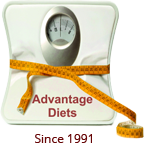6 Fitness Myths Debunked
According to a recent AARP Newsletter (October-November 2013), there are six myths about fitness over the age of 70 we should know about.
Myth 1: Stretching becomes more important as you age.
According to AARP: Research is showing that stretching does little to prevent injuries but could cause them. Supposedly stretching a muscle for 60 seconds or more causes the muscle to contract and tighten when the stretch is completed.
My experience and thoughts: I feel more flexible and limber after I’ve done my morning stretches. I’ll just do them carefully, being sure not to over-stretch.
Myth 2: The best way to burn fat is to work out longer.
According to AARP: A new study found that the intensity of exercise has more impact. You can get more fat burning out of jogging 2 miles than walking 2 miles. The high-intensity exercise boosts your metabolism more.
My experience and thoughts: I worry for older people hitting the pavement too hard with jogging. The joints aren’t as forgiving as they were in one’s youth. So, better to find an exercise that is easier on the joints (bicycling, for example). But the idea of boosting the metabolism is a good one.
Myth 3: Cardio matters more than weight training after 70
According to AARP: It isn’t a matter of cardio being more important or less important. Both cardio and weight training are equally important. Weight training attempts to preserve your muscle, something that age is trying very hard to diminish.
My experience and thoughts: We should all appreciate, no matter our age, that exercise should include three things: aerobic exercise, strength and body building, and flexibility and stretching.
Myth 4: Doing crunches will get rid of belly fat
According to AARP: Spot training, i.e. targeting a specific area to reduce, doesn’t work. Any exercise you’re doing for a particular area is just burning up calories and fat from the entire body.
My experience and thoughts: The value of crunches is building up the muscle in the abdominal region. However, as long as you’ve got extra fat (more than your body needs), your body will deposit it in its favorite fat cells. For some that can be around the hips and others around the belly. Don’t give up on the crunches, but do them where you protect your back. Work on eating smart and exercising consistently.
Myth 5: You shouldn’t exercise if you’re sick
According to AARP: Use your neck as the dividing line for deciding whether to exercise. If your illness involves anything above your neck (sore throat, nasal congestion, watery eyes), a workout is fine, that is if you don’t have a fever. However, if you’re sick below the neck (chest congestion, hacking cough, stomach flu), take it easy for several days.
My experience and thoughts: I agree with AARP, but would also state that even if you do exercise, you don’t have to do it at maximum intensity or duration. Sometimes just walking will make you feel better, clearing your head and getting more air into your lungs. Maybe build up to your usual exercise routine through several sessions. Even consider just taking a ten minute walk two or three times a day for several days.
Myth 6: You burn the most fat when working out hungry
According to AARP: Even though people think that by exercising when they’re hungry, they’ll force their body to go after their fat stores, it doesn’t work that way. The body burns the same amount of fat whether the stomach is full or empty.
My experience and thoughts: I feel very uncomfortable when I exercise after eating. I would have to wait at least an hour or two before I’d feel comfortable. So, I prefer to exercise when I first get up and before breakfast. That may not work for everyone, especially if you eat dinner early. I eat at about 7:00 or 7:30 PM. You have to appreciate that there is only so much stored glycogen in the liver to provide your bloodstream with sugar for exercising. If you’ve eaten an early dinner, there will be less sugar available in the morning and therefore, maybe eating breakfast would work better for you to ensure you don’t get faint from lack of sugar.
Visit www.dummy.advantagediets.com to see more about personality type, weight loss and living a healthy lifestyle.

